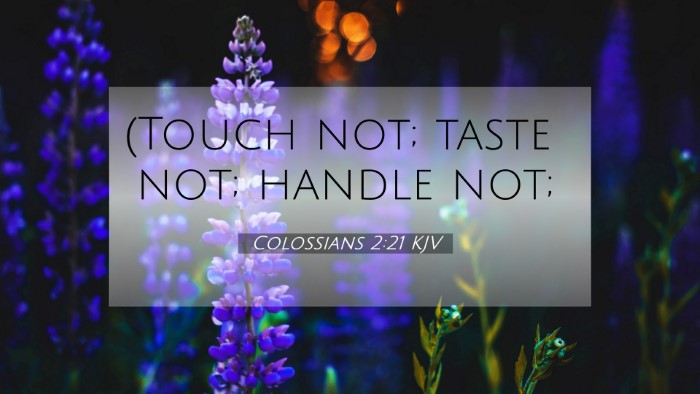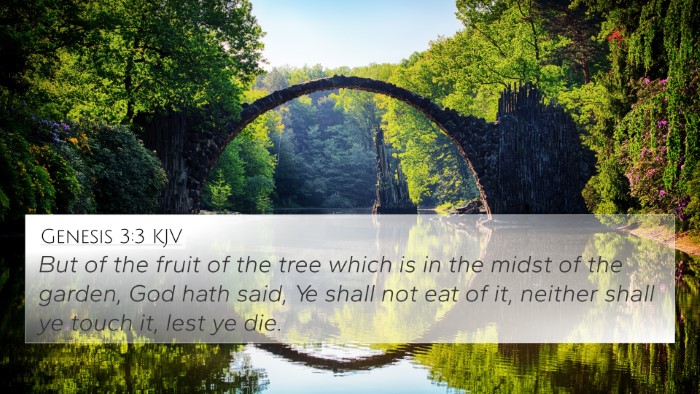Understanding Colossians 2:21
Bible Verse: Colossians 2:21 - "Do not touch, do not taste, do not handle."
Overview
The Apostle Paul, writing to the Colossians, was addressing the dangers of legalism and the emphasis on external, ceremonial laws that were being imposed on the Christian community. This verse serves as a warning against ascetic practices that could detract from the true essence of Christian faith.
Meaning and Interpretations
This verse has been interpreted through various biblical commentaries, providing deeper insights into its meaning:
- Matthew Henry:
Henry emphasizes the futility of relying on ceremonial observances for spiritual growth. He argues that such restrictions only serve to create an illusion of holiness without fostering true righteousness.
- Albert Barnes:
Barnes highlights that the Apostle Paul is combating a form of asceticism that ignores the spirit of freedom in Christ. He points out that such commands do not contribute to spiritual maturity and may even hinder it.
- Adam Clarke:
Clarke notes that these prohibitions should not be seen as inherently wrong but rather as ineffective means that do not lead one closer to God. He emphasizes the need for inner transformation over mere external compliance.
Contextual Analysis
This verse is situated within a broader discussion on the nature of Christian liberty. Understanding it involves examining the cultural and religious background of both Jewish and Gentile practices of the time.
Colossians 2:21 can be linked to other verses that address similar themes:
- Galatians 5:1: "Stand fast therefore in the liberty wherewith Christ hath made us free, and be not entangled again with the yoke of bondage."
- Romans 14:17: "For the kingdom of God is not meat and drink; but righteousness, and peace, and joy in the Holy Ghost."
- 1 Timothy 4:3: "...forbidding to marry, and commanding to abstain from meats, which God hath created to be received with thanksgiving..."
- Acts 10:15: "And the voice spake unto him again the second time, What God hath cleansed, that call not thou common."
- Hebrews 9:10: "Which stood only in meats and drinks, and divers washings, and carnal ordinances, imposed on them until the time of reformation."
- Mark 7:15: "There is nothing from without a man, that entering into him can defile him: but the things which come out of him, those are they that defile the man."
- 2 Corinthians 5:17: "Therefore if any man be in Christ, he is a new creature: old things are passed away; behold, all things are become new."
Thematic Connections
Colossians 2:21 presents several thematic connections in scripture concerning the relationship between law and grace, external versus internal spirituality, and the transformative power of faith in Christ.
Cross-Referencing Biblical Texts
Engaging with the cross-references linked to this verse enriches the understanding of both the context and the implications of Colossians 2:21. Tools for Bible cross-referencing could include:
- Bible concordance for finding related verses.
- Bible cross-reference guide to explore thematic connections.
- Cross-reference Bible study methods for in-depth investigation.
Conclusion
In conclusion, Colossians 2:21 serves as a reminder of the freedom in Christ and the importance of focusing on inward righteousness rather than the outward observance of rules. The practitioner's reliance on biblical knowledge through cross-referencing and thematic study can lead to a deeper understanding of faith and liberty in Christ.






